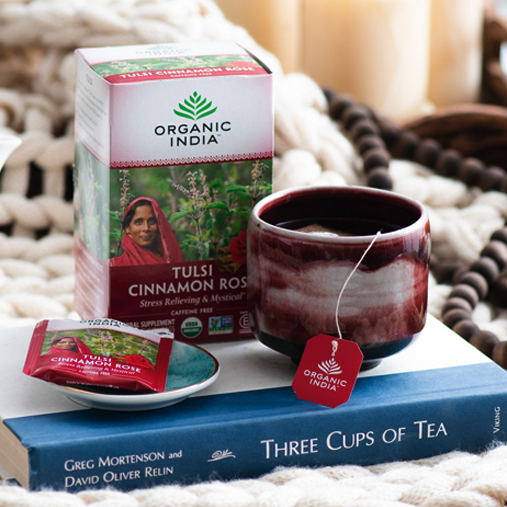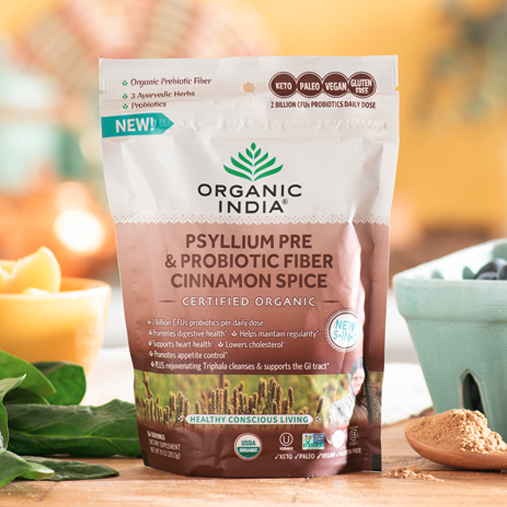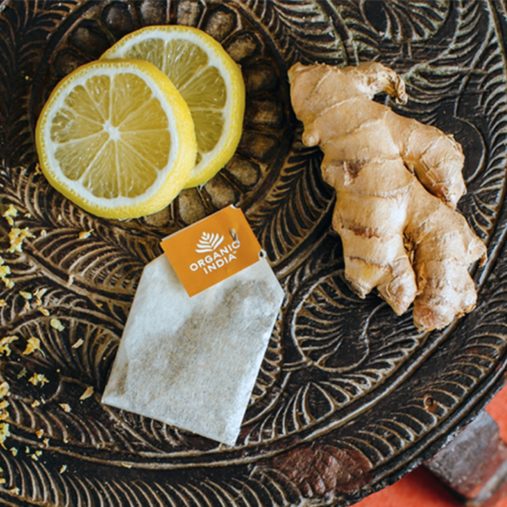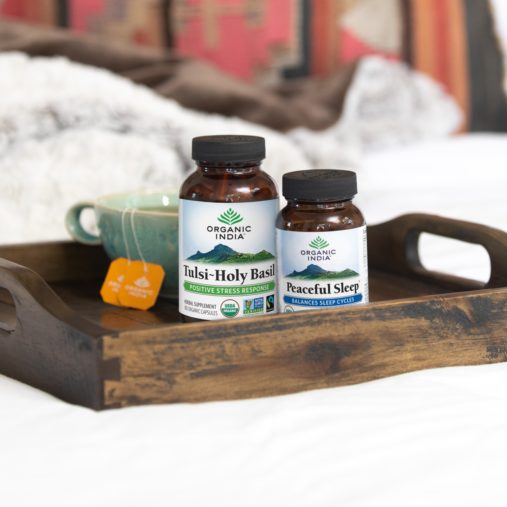ORGANIC INDIA is deeply committed to promoting healthy living for all. In that spirit, we are featuring Brand Ambassador De Bolton’s story about her experience as a Black woman in the current American healthcare system. We hope that by adding her story to the larger conversation about systemic racism within healthcare, we can raise awareness about this issue and contribute to beneficial change, equitable healthcare, and true wellness for people of color. Listen to her podcast, “How to Be Your Own Health Advocate,” here.
Have you ever left a doctor’s appointment confused, angry, and discouraged? Walking into a doctor’s office with Medicaid and walking in a doctor’s office with private insurance are two different experiences — this is a common occurrence for a Black woman. In my life, I have had highs and lows as a college-educated woman. I never thought that I would be homeless, jobless, carless, and on public assistance. At one point I was all of the above. When my family hit a rough patch and ended up losing everything we had, we still had to live life.
When I began my weight loss journey, I was depressed, over a hundred pounds heavier, and the mother of three young children. We had just moved from Massachusetts, where I had a fantastic family practitioner. She was kind, thoughtful, observant, listened to my problems, and worked with me to help me find the best solution for me or my children.
The Bottom Falls Out
Eight years in Massachusetts was a good financial situation for me, but when the bottom fell out, I brought my family to my childhood home in New Jersey to get us back on our feet. Immediately, my medical experience changed. In New Jersey, we were initially on public assistance. We lived in transitional housing because we had no home to call our own and couldn’t afford one after months of trying to find jobs and childcare. We could no longer live with family, so we ended up “in the system.” This was one of the lowest times of my life.
My humiliating healthcare experiences from that time are among the most embarrassing of my life, and they still affect how I see medical professionals today. Doctors would talk down to me if we needed a referral for a specialist, saying, “Well, since you have public insurance, you don’t have many choices in who you can see…” Meaning, you get what we give you. I would leave the office feeling undeserving of care, shamed, and feeling unheard. I remember one practitioner speaking to me, a college-educated black woman, as if I was illiterate, saying, “Do you want me to read this to you?”
I couldn’t find a doctor I felt respected and heard by until my family got back on their feet, and able to afford the astronomical cost of insurance. Only then did I walk into a medical office and realize the difference in treatment.
You Get What You Can Pay For
It’s maddening and embarrassing that your medical care is reflective of the type of insurance you can afford. A caring bedside manner is only given to those who can pay for it. I am not the only black woman who went to seek help and left feeling discouraged, unheard and unworthy of care.
My experience is not unique. This systemic racism is experienced black families daily. They receive inadequate care without choices, resulting in what is called “minority health disparity.” In recent years, there has been pushback to the race-related inequalities in health care for black women, especially maternal health. Ironically, many Black women find work in the healthcare system, yet black female patients face the most inequities.
According to the website Endofound, Black women suffer three to four-times higher pregnancy-related mortality and injury rates. Health conditions that impact Black women in the highest numbers, such as uterine fibroids, receive little to no government research funding. Black women are consistently under-represented in clinical treatment trials — diversity in study populations are required to truly understand the efficacy and safety of drugs and treatments.
The Solution: Proactivity
Feeling overlooked and unheard led me on a holistic journey to “heal myself,” which I don’t advise but has brought me here today. I had to become an advocate for my family’s health by seeking preventative measures to avoid going to the doctor for so many circumstances. My lack of adequate care led me to find Ayurvedic herbs, but I feel that Black women shouldn’t feel like their health concerns don’t matter. They also shouldn’t feel the need to “heal themselves.” Awareness is key!
I discovered Ayurvedic herbs during my weight loss journey — I began having extreme pain in my right hip. I’ve seen many Western medicine practitioners that would visit with me for fifteen minutes, speak down to me after an x-ray of my hip. I had a practitioner tell me, “just don’t use that hip.” Are you kidding me? Don’t walk? He pretty much said nothing was wrong with me, and my pain was made up or possibly a ploy to get narcotic pain medication.
I was offended and outraged. After the appointment, doctors would listen to me for five minutes, poke and prod, and write prescriptions I never filled. The doctor who accused me of pill shopping never checked to see that I had not filled prescriptions for naproxen or muscle relaxers.
Instead of relying on prescription medications, I conducted my own research to find herbs could fill my needs.
One that I found to help me with my hip joint pain that I now know is slip hip syndrome was Turmeric. Along with therapeutic work with my integrative medicine specialist, this herb has been pivotal in decreasing my pain and increasing my mobility.
I am not alone in my experience of inadequate healthcare and racial disparities. Many Black women can relate to my experience while our Caucasian counterparts do not. Even those of low income or on public assistance have better experiences than black women. Why does the color of your skin and income status have anything to do with your health concerns.
We are at a point where awareness is critical to change. Many women are seeking alternatives or self-healing. Even more, don’t go to the doctor until it’s too late. We need awareness of the situation, advocates to help us make a change, and then change.
Seeking Black medical professionals is helpful, but most in my area don’t accept public insurance, and some Black women have minimal options within their community. I would tell other Black women to do the research, find an advocate, and continue seeking practitioners until they find either a person of color or a practitioner with compassion that will listen and treat you and your symptoms with the respect you deserve.
De Bolton is a personal trainer and wellness educator, and a mom of three girls and wife to her best friend. She has been sharing her faith and wellness journey blogging at FaithFueled Mom for over six years. FaithFueled Mom is an award-winning blog that shares faith, wellness, and lifestyle education to help people on their wellness journey. De inspires and motivates through her faith women to glorify God through honoring their temple while offering her community fitness and nutrition to live a healthier lifestyle. Here’s a link to De’s blog on integrative medicine.





